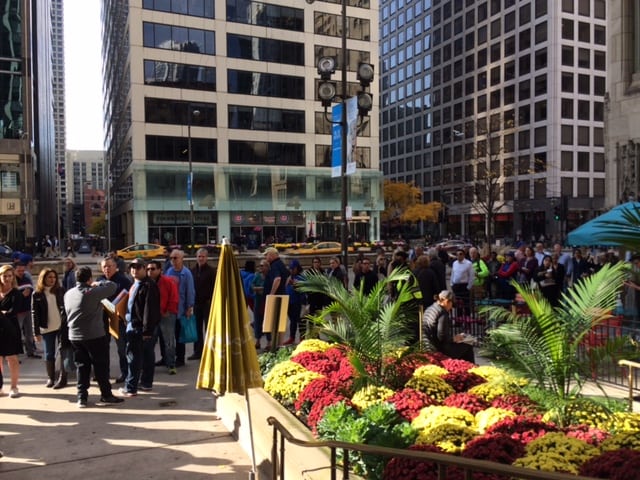
For the first time in 108 years, the Chicago Cubs have won the World Series, breaking the infamous Curse of the Billy Goat. The Chicago Tribune trumpeted on its front page that the Cubs are Champions “At Last!” Cubs fans, and even those that aren’t die-hards but appreciate the importance of this moment in history, lined up to get a copy before their chance to own a piece of history was gone.
Publishers anticipated a rush to purchase copies of the single edition trumpeting the long-awaited win. The Tribune ran 400,000 extra copies to prepare for the monumental front page, putting in place extra staff and print presses running through the night. It wasn’t enough; Thursday afternoon they ran another 300,000 copies, totaling nearly 1 million. Pop-up stores with the papers cropped up around the city with long lines as people waited to grab their piece of history. Copies of the paper were sold on eBay for as much as $26.
Why do we feel the need to snatch up copies of newspapers whenever an important event happens? Part of it is the rareness of it; in this case, it is literally the first World Series win for the Cubs in over a century. But more than that, it is about being a moment in time in our lives that we want to remember. A moment we want to be able to share with our grandchildren one day.
I still remember the day Prince William married Kate Middleton. I rushed out to buy a copy of The Washington Post. The issue contained a glorious, full-color spread with detailed accounts of the British Royal nuptials. Having a copy of the print newspaper makes me feel more a part of an historic day and also brings back fun memories of sharing that day with family. When Prince died unexpectedly earlier this year, newspapers reserved their front pages for purple-tinted homages to the pop icon. I made sure I had a copy of at least one of the many newspaper editions to pay tribute to him that day. And of course, the day after the September 11, 2001 attacks, I bought a newspaper. Despite the tragic nature of the event, it was important to me to have a copy of a paper from the day that changed the course of American history.
When it comes to capturing the most important moments in history, no matter how convenient it is to carry the answers to all of our questions around in the form of a smartphone in our pockets, the moments we experience there are still remarkably fleeting compared to print. A webpage article, email alert or social media post will easily be buried in the next day’s deluge of news. It lacks the permanence of a print paper. With a physical paper, we can pull it out any time and remember the feeling of that moment. We can take those memories with us that make up our lives, good or bad, and pass them on, where they will be remembered.
